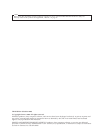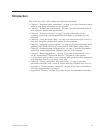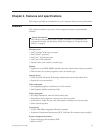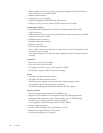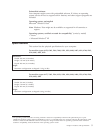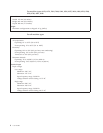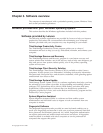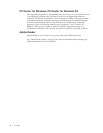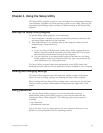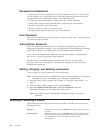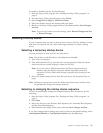v Wake on Ring (in the Setup Utility program, this feature is called Serial Port
Ring Detect for an external modem)
v Remote Administration
v Automatic power-on startup
v System Management (SM) BIOS and SM software
v Ability to store power-on self-test (POST) hardware test results
Input/output
features
v 25-pin Extended Capabilities Port (ECP)/Extended Parallel Port (EPP)
v 9-pin serial port
v USB connectors (two on the front panel and the number of the rear panel USB
connectors varies by model)
v Standard mouse connector
v Standard keyboard connector
v Ethernet connector
v VGA monitor connector
v Three audio connectors (audio line-in, audio line-out, and microphone) on the
rear panel (some models)
v Two audio connectors (microphone and headphone) on the front panel (some
models)
Expansion
v Three drive bays (some models)
v Five drive bays (some models)
v PCI adapter card slot (one or more varies by model)
v PCI Express adapter card slot (varies by model)
Power
v 280 Watt, 310 Watt manual and auto
v 280 Watt, 220 Watt manual and auto
v 280 Watt, power supply with auto-sensing voltage-selection switch
v Automatic 50/60 Hz input frequency switching
v Advanced Configuration and Power Interface (ACPI) support
Security
features
v User and administrator passwords for BIOS access
v Support for the addition of an integrated cable lock (Kensington lock)
v Keyboard with fingerprint reader (some models, see the ThinkVantage
Productivity Center program for more information)
v Cover presence switch (intrusion switch, some models)
v Startup sequence control
v Startup without diskette drive, keyboard, or mouse
v Diskette and hard disk drive I/O control
v Serial and parallel port I/O control
4 User Guide



